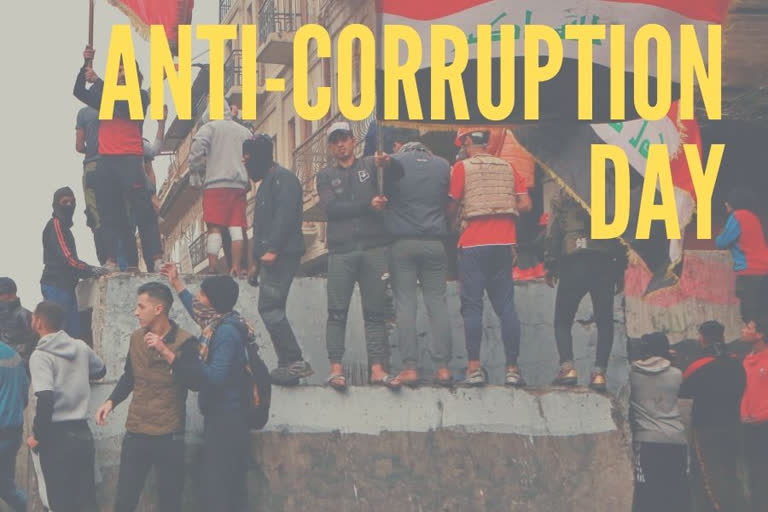Hyderabad:International Anti-Corruption day is observed on 9th December to urge nations, citizens and other stakeholders to unite in the fight against bribes and corruption, which harms the developmental prospects of the world.
According to the United Nations Sustainable development goal of 2030, the global fight against corruption is to ensure precious resources are meant to serve the peoples of the world.
India observed its first International Anti Corruption Day in 2006 when it became a signatory of the UN Convention against Corruption. According to the UN, corruption is a complex social, political and economic phenomenon that affects all countries and undermines democratic credentials, slows economic growth and contributes to government instability.
It is a well-known fact that corruption attacks the electoral process and increased bureaucratic cob-webs. Also, it stunts economic development and affects the small businesses within the country. it hampers the investors' sentiment and the result is poor Foreign Direct Investment (FDI).
Governments, the private sector, non-governmental organizations, the media and citizens around the world are joining forces to fight this crime. The United Nations Development Programme(UNDP) and the United Nations Office on Drugs and Crime (UNODC) are at the forefront of these efforts.
In a message to the nation, UN Secretary-General said that trillions of dollars – the equivalent of more than five per cent of global Gross Domestic Product (GDP) – are paid in bribes or stolen through corrupt practices that seriously undermine the rule of law and abet crimes such as the illicit trafficking of people, drugs and arms.
Tax evasion, money laundering and other illicit flows divert much-needed resources from schools, hospitals and essential infrastructure; funds that are essential to advancing the Sustainable Development Goals.
The theme is "United Against Corruption", a multi-year theme since 2017. The theme for 2014/15 was "Break the Corruption Chain".
Corruption in India
Corruption has multiple faces including bribery, embezzlement (misappropriation of funds), influence peddling (using influence to carry out illegal practice), money laundering, illicit enrichment and obstruction of justice.
